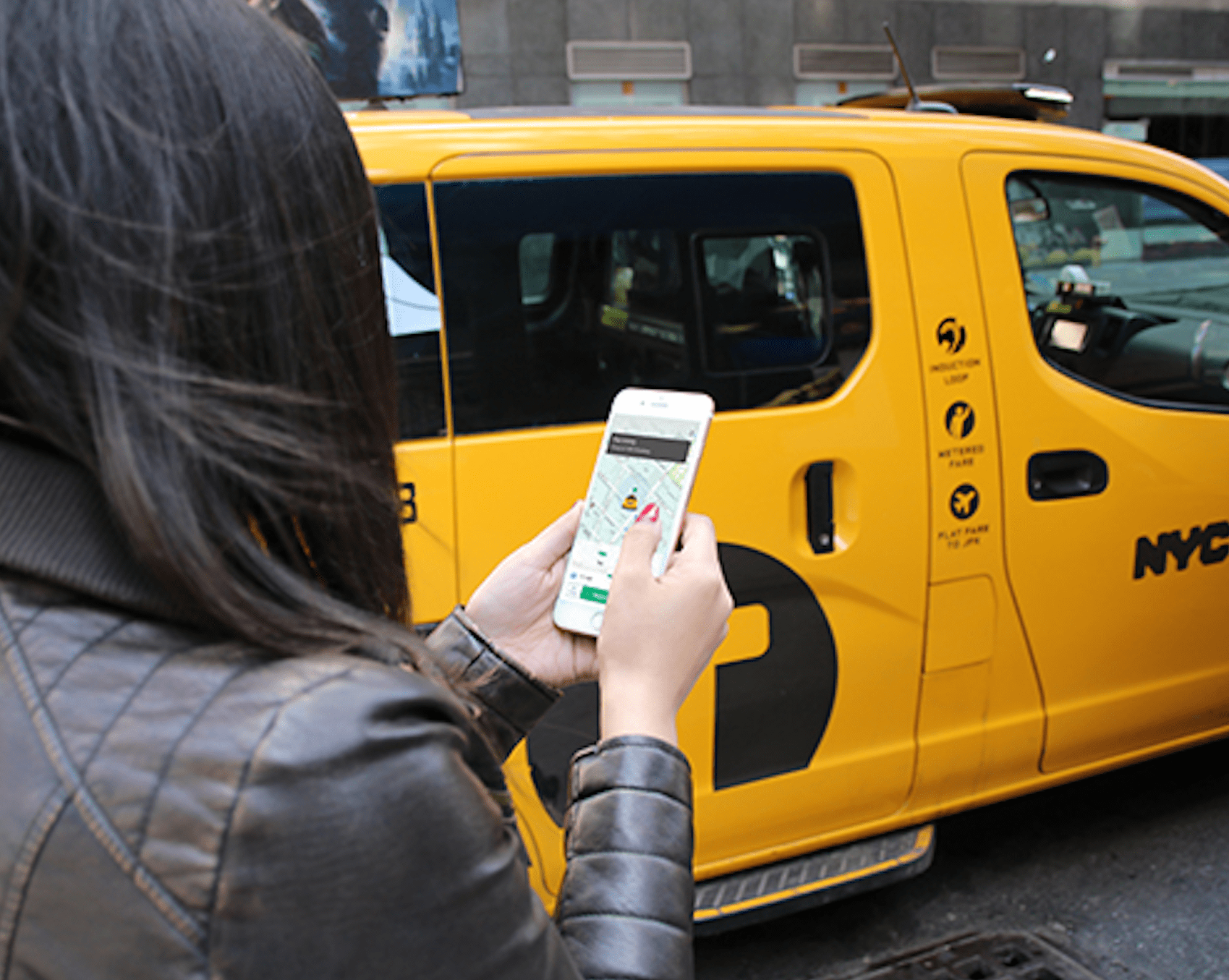The rising popularity of ride-hailing services like Uber and Lyft in recent years has not only been linked to a reduction in transit ridership and an increase in traffic congestion. It has also sharply reduced business for the taxi industry, which used to be a fairly reliable source of income for immigrants and others willing to put in the work to make a living wage. At the same time, Chicagoans of color have long reported problems with discrimination by cab drivers who pass them over when they try to flag a ride on the street, or refuse to take them to certain neighborhoods. The Curb app for taxis has the potential to address both issues.
Curb vice president Jason Gross says that by adopting the new technology, cab drivers can level the playing field in their competition with ride-hailing. “I would say that the stories of the taxi industry’s eventual demise are a bit overstated,” he says. “There’s certainly been an impact with the arrival of the ride-sharing apps. I think what we’ve seen, overall, is that actually just increased the utilization of transportation services. And the arrival of Curb as an option to make taxis more competitive has been welcomed by the industry, and it definitely serves a valuable purpose for the riding public."
Gross says his company was the first to install credit card readers in cabs in New York City years ago. "It’s always been part of our DNA to lead the industry forward and provide the service that the riding public wants," he says. "And we do that in an efficient way that helps put more money in the pockets of taxi drivers, helping support an industry that really is part of the fabric of public transportation.”
On the face of it, the Curb app is relatively simple, giving riders the ability to book and pay for a cab ride in advance. Curb was a result of a merger between two other transportation systems, Taxi Magic and Way2Ride, which date back to 2008. “There are a few different things we do with the app that serve different segments of the community, and different needs," Gross says. "One of those is the traditional hailing of a cab on demand, or reserving it in advance and having it easily trackable on the app. It comes to pick you up, and it's always a licensed, professional, insured driver."
Curb has also added the option to select a wheelchair-accessible vehicle. "That’s certainly helped mobility for the community of people who use wheelchairs," Gross says. Thirdly, the app allows customers to pay for their ride in the app, add a tip, and get their receipt sent to them digitally, just like using Uber or Lyft. "Even for people in Chicago who are used to just flagging a cab down on the street, they still have that almost magical experience of being able to hop in and when the ride’s over, just hop out," Gross says. "Everything should be taken care of.”
Another advantage of Curb app is that interactions with your taxi driver are documented electronically, which helps discourage racial or geographic discrimination against customers. This also makes it easier to report any issues that do arise to the driver's company and/or the app.
Streetsblog reader Kevin Monahan is a Curb enthusiast. Although Monahan says he only takes cabs about twice a month, he tends to use the Curb app when he does. “I had been reading in papers about ride-sharing influencing the taxi industry,” he says. “I had also read about this Curb app being developed as an alternative for taxi cabs to provide the same level of service. I personally prefer hiring professional, fully-insured vehicles and drivers who are being paid a living wage.”
In spite of Chicago's recently passed surcharge on ride-hailing trips to fund CTA infrastructure, local Uber and Lyft trips, subsidized by venture capital, are still cheaper than taxi trips. A recent MIT study found that drivers using the apps make a median income of less than $4 an hour, although the companies have disputed that finding.
Monahan's partner Justyna Bicz is also fan of the Curb app. “Whenever I’ve used it, it works fine," she says. "It’s more convenient than having to call a taxi dispatcher... I take cabs once or twice a month, most often if the weather is bad, or if I have to be at the train station or airport really early carrying a large object. Occasionally I'll take one when I'm traveling with with friends.”
Bicz adds that she is philosophically opposed to the Uber model. "It’s supposed to be a flexible way to make money, but it’s not providing full-time work to people. There's not a lot of security in the job.”
Gross argues ride-share fans should switch to Curb not just because they care about the wellbeing of their driver, but because taxis offer a superior product to ride-hailing. "[We’re able to] provide the value, not just in convenience and ease of use, but also in terms of safety, security, and accountability.”
Representatives of Uber and Lyft did not respond to requests for comment.




